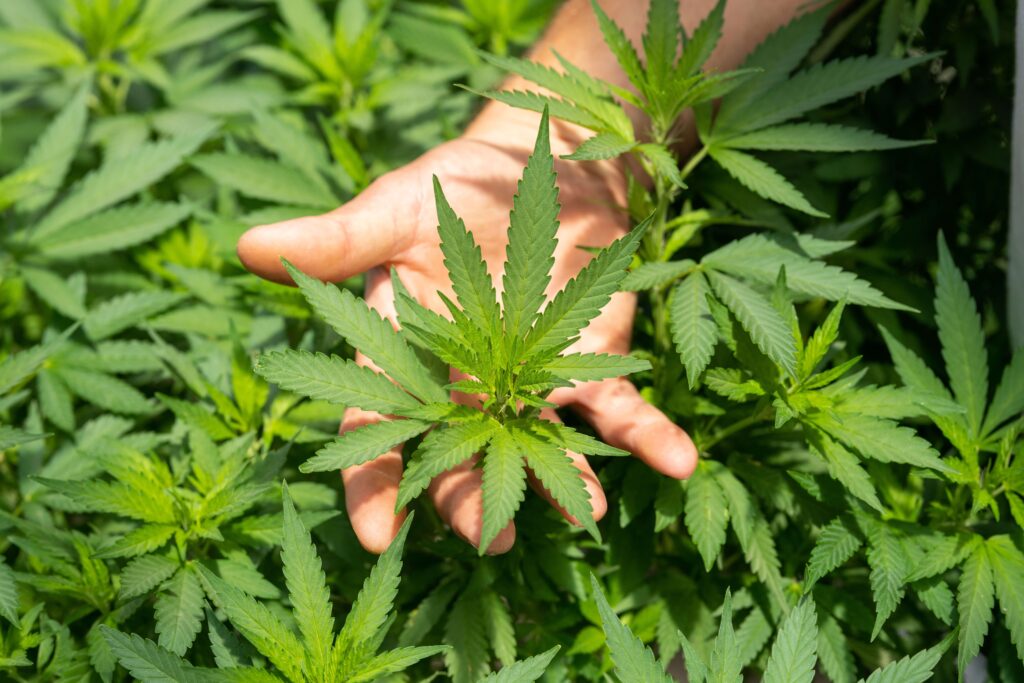
In recent years, CBD, short for cannabidiol, has made a grand entrance into the wellness world. As legalization of medical and recreational marijuana has swept through numerous states, CBD has captured the spotlight for its potential. CBD can address a myriad of health concerns, including anxiety, pain relief, and sleep issues. The distinguishing feature of CBD is its non-psychoactive nature, ensuring that it won’t leave you feeling “high.” But what exactly is CBD, how does it interact with the body, and how can you safely incorporate it into your wellness routine? Here, we present to you: A Beginner’s Guide to CBD!
What is CBD?
CBD is just one of over 100 compounds found within the cannabis plant. This miraculous substance falls under the category of cannabinoids. Cannabinoids interact with the endocannabinoid system in our bodies. This intricate system regulates a diverse array of bodily functions, ranging from sleep patterns, mood, appetite and pain perception. CBD functions by binding to receptors within this system, modulating its activity, and potentially leading to therapeutic benefits.
How is CBD different from THC?
The most apparent disparity between CBD and THC lies in their psychoactive effects. It’s THC that’s responsible for the euphoric sensation that comes with marijuana. On the contrary, CBD won’t induce any form of intoxication. It’s legal in numerous states, provided it contains less than 0.3% THC. While THC has medical as well as recreational use, CBD has carved out a niche in the medical and therapeutic realm.
What are the potential uses for CBD?
The versatility of CBD shines through in its extensive range of potential applications. Scientific studies have shown promise for various benefits, including relief from anxiety, pain management, anti-inflammatory properties, and improved sleep. Individuals turn to CBD to alleviate the symptoms of anxiety disorders like generalized anxiety disorder, social anxiety disorder, and post-traumatic stress disorder. Additionally, it can help with the management of pain associated with conditions such as arthritis or multiple sclerosis. Research into CBD’s anti-inflammatory effects holds potential for treating skin conditions, irritable bowel syndrome, and even Alzheimer’s disease.
How can you consume CBD?
CBD offers multiple modes of consumption, with the choice primarily dependent on the form it takes. Common CBD forms encompass oils, edibles, capsules, topicals, and vaping or smoking. Sublingual CBD oils are applied under the tongue. This allows for absorption through the mouth’s mucous membrane and into the bloodstream. Edibles and capsules are ingested and absorbed through the digestive system, resulting in a slower onset of effects. Topicals are directly applied to the skin, making them ideal for localized relief. Vaping or smoking CBD offers the fastest onset of effects but may come with respiratory risks.
Is CBD safe?
CBD is generally safe; however, it’s crucial to consult your healthcare provider before incorporating CBD into your routine, particularly if you are currently taking medications. CBD can interact with specific drugs, including blood thinners and antipsychotics. Ensure you source your CBD products from reputable suppliers to guarantee accurate labeling and freedom from contaminants. While CBD holds promise for various conditions, it is not a cure all and should never replace medical treatment.
Conclusion:
In summary, CBD is a captivating compound with a multitude of potential health benefits. It’s vital to keep in mind that ongoing research is essential to fully grasp its effects and how it interacts with various medications. For those seeking a natural alternative to conventional treatments, CBD may be a promising avenue. Always remember to initiate a dialogue with your healthcare provider, select reliable sources for your CBD products, and start with a conservative dosage, gradually increasing it to find the optimal balance for your unique needs and preferences. CBD’s journey of exploration is just beginning, and its potential to enhance our wellness is an exciting prospect. Hopefully, with this knowledge of A Beginner’s Guide to CBD you can start exploring and incorporating CBD into your wellness routine.

